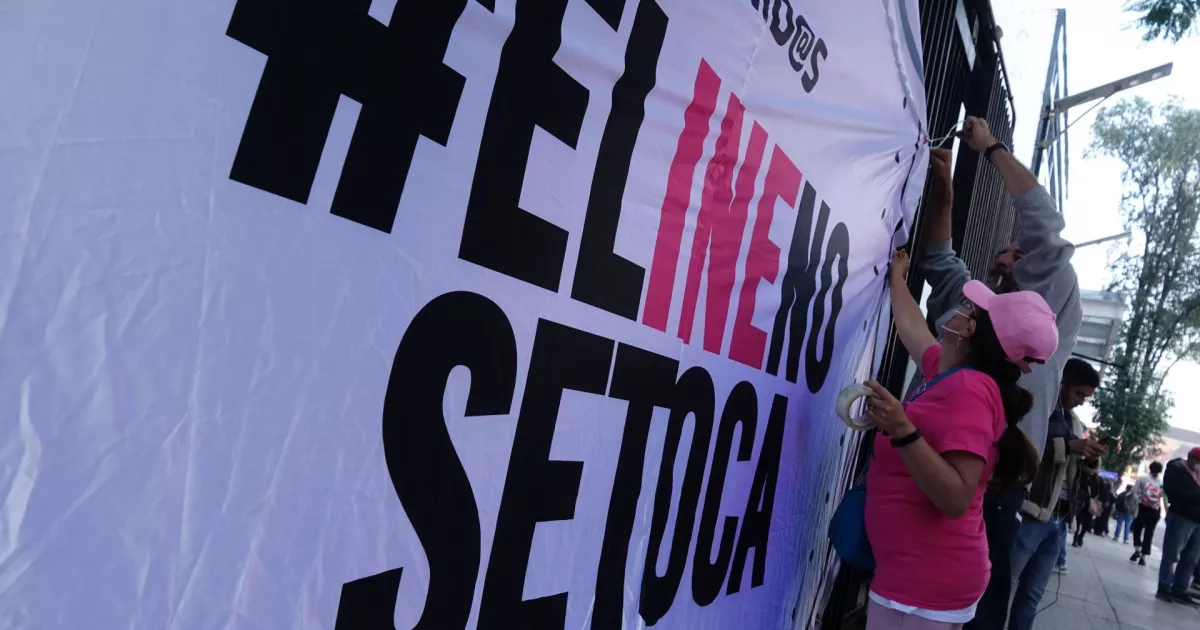Although for civil society organizations and the opposition, this was the year of the presidential attack to “undermine” the credibility of the INE, discredit its members, reduce its autonomy and “disappear” it, for the president, Morena and their allies, It was only an attempt to put a stop to what they consider “excesses in directors’ salaries”, the “frauds” they accuse have allowed and the “attacks” they accuse, the movement has suffered from the institution.
In this context, the INE has faced everything from criticism, complaints and cuts in its resources to the threat of restructuring it.
Here we tell you some moments that the electoral body has gone through during 2022.
Austerity and revocation
The INE started the year with 4,913 million pesos less than what was requested and closed it with the approval, last November, of another adjustment for 4,475 million more, for 2023, which will be the fifth consecutive year of multi-million dollar cuts to its spending.
Even with fewer resources, on April 10 the INE carried out the first mandate revocation exercise. The lack of budget, the review of citizen signatures; His organization, the dissemination and resolution of complaints, motivated months of confrontations in which the president, Morenista leaders and legislators and allies participated, against the councilors, led by its president, Lorenzo Córdova.
First, due to the INE’s warning that without 3.830 million requested for revocation –as required by law, with more than 160,000 polling stations– it could only install a little more than 57,000 of them.
The Legal Department litigated the case before the Supreme Court of Justice of the National (SCJN) and the president did so from his mornings, both to accuse the INE of trying to prevent the exercise. At the same time, the Ministry of Finance (SHCP) denied the Institute at least 1,738 million emerging pesos to carry it out.
In the end, the SCJN agreed with the INE, as it ordered it to organize the consultation with the resources and savings it had. It also considered the cut applied by the Chamber of Deputies irregular and ordered it to duly justify the reason for the cut. On September 29, the deputies of Morena and allies voted again to maintain that adjustment to spending.
(Special)
The decision of the INE to delay the organization of the process, in order to generate savings, motivated at the end of 2021 one of several complaints against the directors promoted by the deputy of Morena, Sergio Gutiérrez Luna, then president of the Board of Directors of the Chamber of Deputies, who accused the counselors before the Attorney General of the Republic (FGR), a complaint from which he had to withdraw.
Now that time was up and the issue of resources had been overcome with their own savings, that consultation was finally carried out. Those who requested it were citizens, above all, from the organization Que Siga la Democracia Civil Association, headed by Morenista cadres, but to “outwit” the ban on the parties promoting it.
The INE detected at least 463,605 irregular signatures submitted to request the process. Among them, 5,368 dead citizens and confirmed that Morena, the Labor Party (PT) and the Green Party (PVEM) would have violated the law by intervening and even financing these tasks, and state and federal public servants, as well as leaders collected signatures, although the Constitution and the Federal Mandate Revocation Law prohibits it.
The INE was also accused of boycotting the process and not disseminating it; the respective campaign formally began on February 10, as required by law.
But during previous weeks, the president from his morning conferences, in addition to governors, presidential candidates and legislators from Morena and allies, launched a campaign to call for participation in the “ratification” of the president.
This despite the fact that the Constitution and the law prohibit all public servants, political leaders and legislators from promoting this exercise with public resources, an exclusive power of the INE.
Until April, the INE counted almost 200 violations of this type, which would configure “systematic” irregularities and more than 25 precautionary measures to stop these behaviors, since there were dozens of complaints filed, and the defendants accused that the INE exceeded its limits and restricted their rights. .














